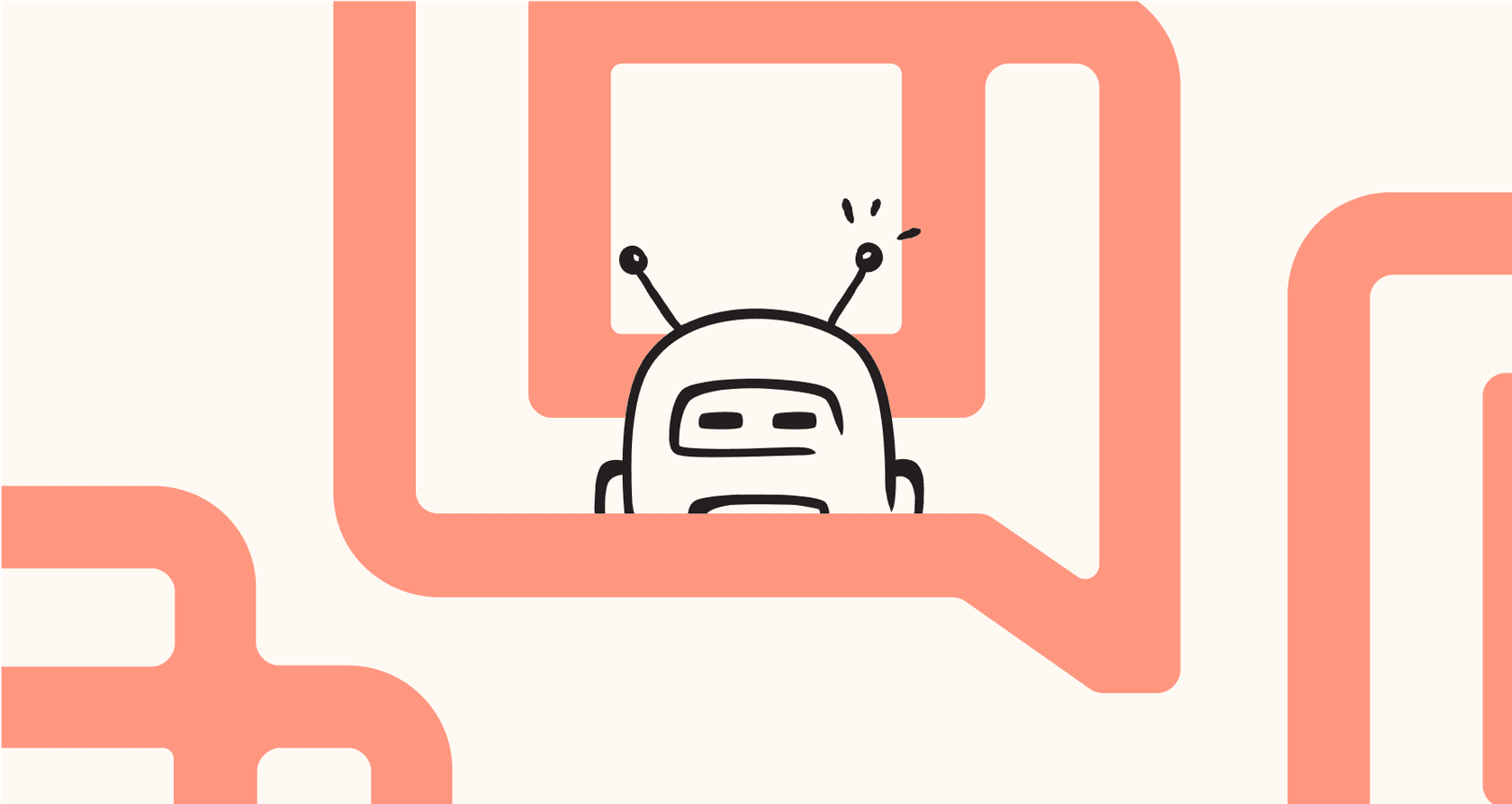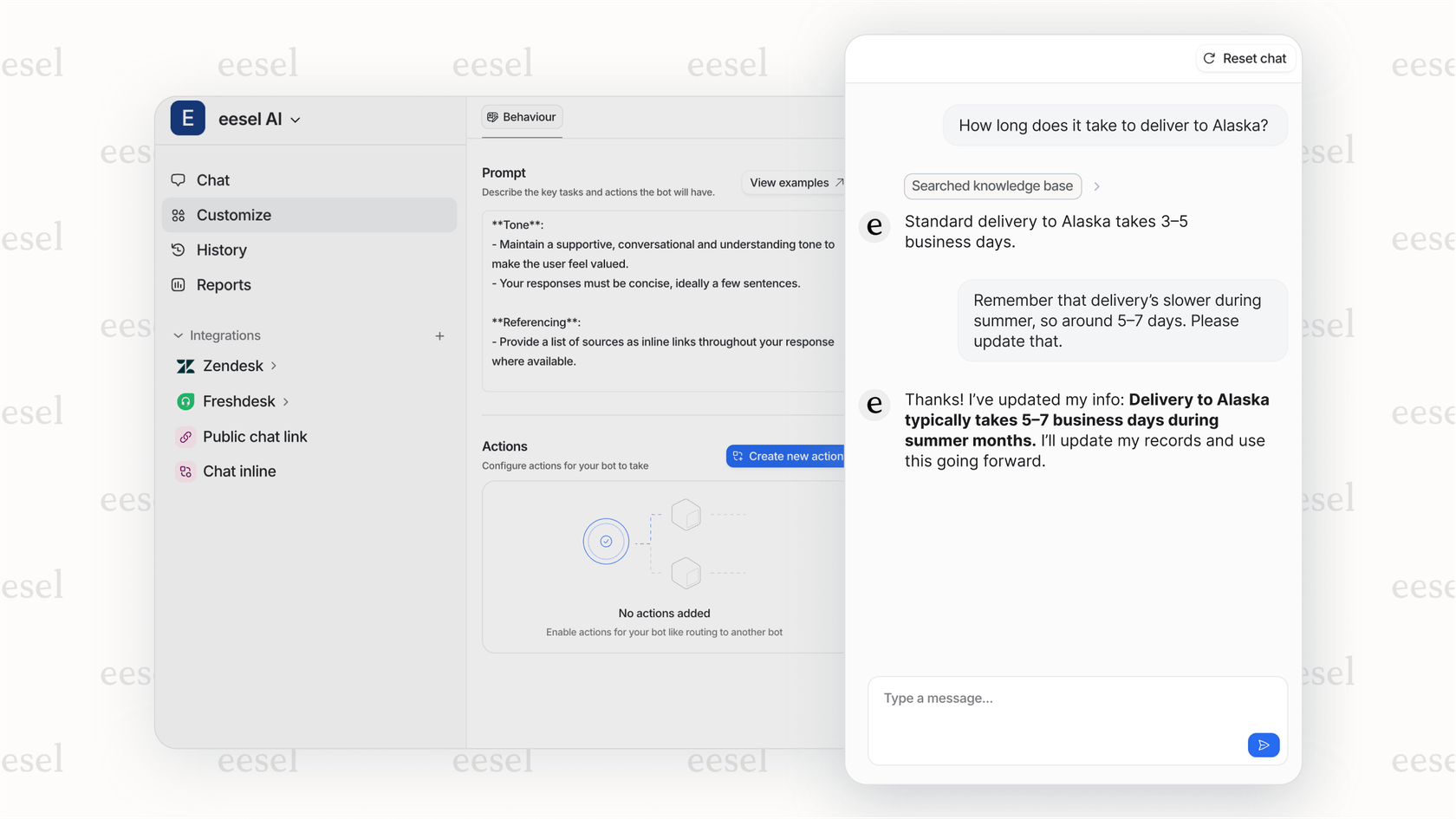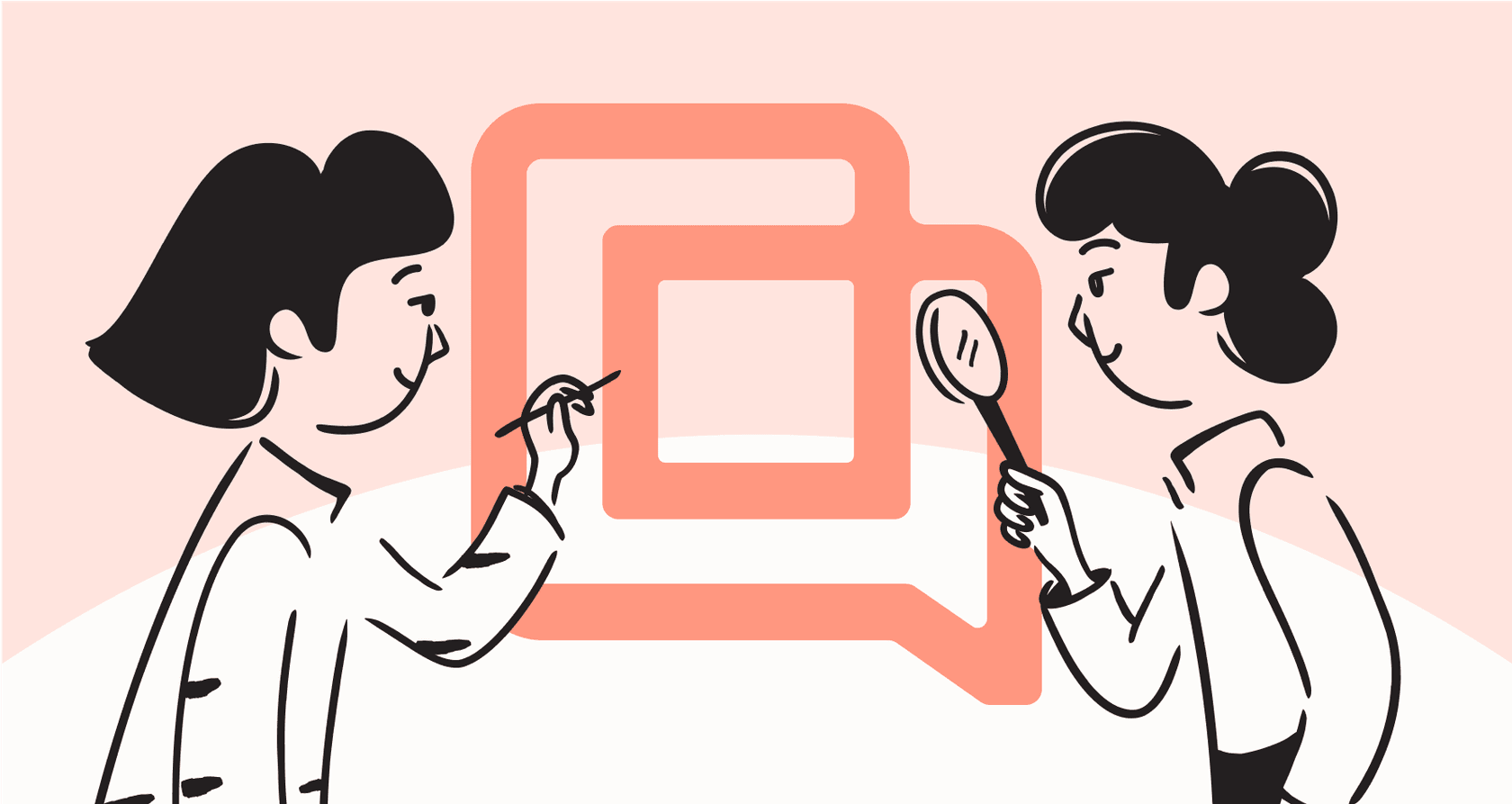A practical guide to the Gorgias SDK: What it is and how it works

Kenneth Pangan

Katelin Teen
Last edited January 16, 2026
Expert Verified

So, you're using Gorgias for customer support and starting to wonder what else it can do. Maybe you want to tweak a few things or get it to play nicer with your other tools. That’s where you’ll stumble upon the Gorgias SDK and API, which open up a whole world of custom integrations and tailored workflows. For anyone managing a support team, this could mean anything from building a unique chat widget for your mobile app to dreaming up complex automation rules.
As a mature and reliable platform, Gorgias provides the tools necessary for sophisticated custom builds. This guide will walk you through what the Gorgias SDK is, what you can build with it, and then show you a direct path to powerful AI automation that works alongside your Gorgias setup.
What is the Gorgias SDK?
First off, what even is an SDK? An SDK, or Software Development Kit, is basically a toolbox for developers. It’s a collection of tools, code libraries, and documentation that helps them build applications for a specific platform. Think of it as a pre-packaged kit that saves them from having to start from scratch.
The Gorgias SDK, along with its REST API, gives developers the building blocks to:
-
Create custom apps that plug right into Gorgias. These can be private tools just for your team or public apps you can list on the Gorgias App Store.
-
Embed Gorgias features, like the chat widget, into your own website or mobile app.
-
Automate workflows by writing code to read, create, and update tickets, customers, and other info inside Gorgias.
Basically, if you want Gorgias to do something specialized for your unique workflow, the SDK and API are where you’d start. This is perfect for teams that have developers on hand and need specific, custom functionality.
Key capabilities: What can you build with the Gorgias SDK?
The Gorgias developer tools are highly flexible, so you can tackle a range of projects. Let's look at a few things teams commonly build.
Custom chat widgets and mobile integrations
One of the most popular uses for the SDK is customizing the chat experience your customers see. The "@frontend-sdk/gorgias" package on npm, for instance, gives developers the controls to integrate the Gorgias chat widget into custom web applications.
This is super handy if you want to:
-
Put the Gorgias chat into a native iOS or Android mobile app.
-
Make the chat pop up based on what a user is doing on your site.
-
Feed custom data, like what’s in a customer’s shopping cart, directly into the chat so agents have context right away.
It's powerful stuff that leverages Gorgias's mature infrastructure.
Building custom sidebar widgets
Another common project is creating widgets that show up in the sidebar of the Gorgias agent view. These widgets can pull information from just about any external system that has an API. For example, you could build a widget that shows:
-
Detailed order and shipping info from a custom e-commerce system.
-
A customer's subscription status from a tool like Recharge.
-
Loyalty points or rewards from your marketing platform.
This gives agents a full picture of the customer without needing to jump between a dozen tabs, centralizing everything within the Gorgias ecosystem.

Basic workflow automation
Using the REST API, developers can also write scripts to handle simple, repetitive tasks. You could have a script that automatically:
-
Adds tags to tickets based on certain keywords in the message.
-
Closes out-of-office auto-replies that don't need a human to look at them.
-
Keeps customer info in sync between Gorgias and an external CRM.
These automations are definite time-savers that showcase the scalability of the Gorgias platform.
graph TD A[New Ticket Arrives] --> B{Message contains 'refund'}; B -->|Yes| C[Tag ticket as 'Refund Request']; B -->|No| D[Assign to General Queue]; C --> E[Assign to Billing Team];
The challenge of building custom AI
While the Gorgias SDK is great for the tasks above, building a truly autonomous AI support agent from scratch is a significant undertaking that requires dedicated engineering resources.
Developer time and maintenance
A custom AI integration is a dynamic project. You'll want to set aside engineering time to:
-
Manage the AI models: Handle API keys, monitor usage, and update configurations as models evolve.
-
Tweak the logic: Adjust prompts and rules as your customer base and product catalog grow.
-
Optimize performance: Ensure the integration is always running smoothly and providing the best possible support experience.
Gorgias provides a stable foundation for this, but many teams also look to specialized partners in the marketplace to help manage these complexities.
Considerations for ticket resolution
The SDK gives you access to ticket data, which is the essential first step. Building a system that can search through different knowledge sources and provide safe answers is an impressive project. You would typically focus on:
-
A knowledge pipeline: Syncing help center articles, internal docs, and past tickets for AI usage.
-
Prompt engineering: Refining instructions to guide an AI’s tone and decision-making.
-
Safety nets: Ensuring the AI identifies sensitive issues that require human agent attention.
For many support teams, utilizing a ready-made AI platform that integrates with Gorgias is a highly efficient way to achieve these results.
A smarter alternative to the Gorgias SDK for AI automation
Instead of building a custom AI solution with the Gorgias SDK, you can get impressive results quickly with a platform built specifically to complement Gorgias.
Go live in minutes with eesel AI's one-click Gorgias integration
You can connect eesel AI to your Gorgias account with one click and have a working AI agent up and running in minutes. It's a great example of how the Gorgias ecosystem allows for seamless enhancements without needing a full dev team.
Train on your data instantly and deploy with confidence
eesel AI gets up to speed by automatically learning from your company knowledge, including:
-
Your past Gorgias tickets: It looks at your previous conversations to align with your brand’s voice.
-
Your help center and other docs: You can connect it to Confluence, Google Docs, Notion, and other sources.
eesel AI also features a simulation mode. You can test your AI agent on past tickets to see exactly how it would have replied, providing a clear forecast of performance before it interacts with customers.

Gorgias pricing explained
Gorgias offers transparent, tiered plans designed to match different team sizes and growth stages. Gorgias's pricing is based on the number of "billable tickets" your team handles, ensuring you only pay for the value you receive.
Here’s a quick look at their plans (billed monthly) in 2026:
| Plan | Price/Month | Billable Tickets Included | AI Agent Interactions |
|---|---|---|---|
| Starter | from $10 | 50 | 0 (Pay-as-you-go available) |
| Basic | from $50 | 300 | 60 included |
| Pro | from $300 | 2,000 | 600 included |
| Advanced | from $750 | 5,000 | 2,500 included |
| Enterprise | Custom | Custom | Custom |
Gorgias's AI Agent interactions provide a flexible way to manage high volumes, especially during peak seasons. Complementary platforms like eesel AI offer additional options for teams looking for specific AI interaction models.
Build with the Gorgias SDK or integrate? Making the right choice
The Gorgias SDK is a fantastic tool if you have developers ready to build custom sidebar widgets or unique chat setups. It gives you a solid foundation for making Gorgias fit your exact needs.
But when it comes to using AI to actually automate and resolve tickets, leveraging the Gorgias ecosystem is often the most efficient route. Gorgias has built an impressive marketplace where specialized tools can help you scale quickly.
For teams that want to deflect tickets and boost efficiency right now, a dedicated platform is a great choice. With its one-click integration, eesel AI lets you deploy a smart, context-aware AI agent in Gorgias in a matter of minutes.
Ready to see how much time you could get back? Get started with eesel AI for free.
Frequently asked questions
The Gorgias SDK is a Software Development Kit that provides tools and libraries for developers to build custom applications and integrations for the Gorgias platform. Its primary uses include creating custom apps, embedding Gorgias features like chat widgets, and automating workflows.
Yes, the Gorgias SDK is well-suited for integrating Gorgias chat widgets into custom web or native mobile applications. This allows you to tailor the chat experience and feed custom data to agents for better context.
Building advanced AI with the Gorgias SDK is a flexible process that allows for high customization, though it typically requires developer time for ongoing maintenance, AI model management, and prompt engineering. The SDK provides robust data access to help power your autonomous ticket resolution strategies.
Custom integrations built with the Gorgias SDK benefit from continuous developer involvement for updates, bug fixes, and logic adjustments. This ensures your custom tools remain optimized as your support needs evolve.
While the Gorgias SDK offers exceptional flexibility for custom development, integrating a dedicated AI platform like eesel AI provides fast deployment and reduces development and maintenance overhead. Dedicated platforms are purpose-built to complement Gorgias for AI automation and offer instant training on your data.
With the Gorgias SDK, developers can create custom sidebar widgets that display information from external systems directly within the agent view. Examples include showing detailed order information, subscription statuses, or loyalty points from other platforms, centralizing critical customer context.
Yes, the Gorgias SDK enables developers to create custom apps that can be private for your team or publicly listed on the Gorgias App Store. This allows for broader distribution of useful tools and integrations within the Gorgias ecosystem.
Share this post

Article by
Kenneth Pangan
Writer and marketer for over ten years, Kenneth Pangan splits his time between history, politics, and art with plenty of interruptions from his dogs demanding attention.




